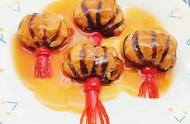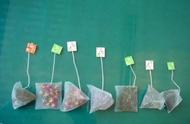编者按/精读指导(B):普通巫师等级考试(O.W.L.s: Ordinary Wizarding Levels’ examination)为期两周,是霍格沃茨魔法学校五年级学生必须参加的一次考试。我们会学习4课左右课时来学习这些考试,这次普通巫师等级考试的结果会出现在第六册中,我们届时会学习。我们会学习这两周的考试描写,在学习英语词汇的同时,学习如何写好一场考试、连续几场考试。第一场考试在周一上午考‘咒语理论’(Lesson 39);普通巫师等级考试的第二场考试为 ‘咒语实践’。本次咒语实践考试的描写比较简洁,描写到同学考前紧张练习咒语,对比马尔福的考试情形而简要的叙写了哈利使用漂浮咒的心理活动(Lesson 40);用两小段文字简要描述了周二的变形课理论和实操考试(第三、第四场考试);用一句话描写了周三的草药课考试(第五、第六场考试);用一句话来描写周四第七场‘黑魔法防御术理论’考试:“He had no problem with any of the written questions”,以托福迪教授让哈利额外展示‘博格特驱逐咒’来描写哈利学习最好的学科‘黑魔法防御术’(第八场考试)(Lesson 41)。Lesson 42选自英文版 Harry Potter and the Order of Phoenix第31章第660页,用托福迪教授 “excellent”的评语来表述哈利此科考试结果的优异;本课重点来描写赫敏的古如尼文测试,通过赫敏对一个翻译错误的气恼描述,引出海格,为下文开除海格预先做了铺垫。
本课学习需要注意 play, shriek, bite/snap sb’s head off这些词汇。play是一个常用词汇,在本页含义为‘闪烁;浮现;掠过’:There was a nasty smile playing around her wide, slack mouth。shriek的含义为‘尖叫’,但是需要参考固定短语bite/snap sb’s head off ‘气愤地对某人大喊大叫;[尤指毫无道理地]呵斥某人’的用法,才能更好理解它在本文的含义:but I just walked past there and Umbridge is shrieking her head off。

Harry Potter and the order of the Phoenix, Chapt 31, page 660
nasty [ˈnɑːsti] adj: unkind; unpleasant. (不友好的; 恶意的; 令人不愉快的) SYN: mean. [2014a: 81; 2014b: 152; 2014e: 99]
play [pleɪ] v: adv./ prep. (闪烁;浮现;掠过) [2014e: 660]
slack [slæk] adj: (不紧的;松弛的) SYN: loose. [2014e: 134]
day off: (pl. days off) (休假日;休息日) [2014e: 660]
sit [sɪt] v: (rather formal) to do an exam. (参加考试;应试) [2014e: 660]
rune [ruːn] n: (如尼字母[属于北欧古文字体系]) [2014d: 492; 2014e: 178]
stretch [stretʃ] v: to put your arms or legs out straight and contract your muscles. (伸展;舒展) [2014e: 660]
yawn [jɔːn] v: to open your mouth wide and breathe in deeply through it, usually because you are tired or bored. (打哈欠). [2014a: 8; 2014e: 301]
waft [wɒft] v: to move, or make sth move, gently through the air. ([随风]飘荡;使飘扬;吹拂) SYN: drift. [2014a: 183; 2014e: 660]
edge [edʒ] n: (边;边缘;边线;边沿) [2014d: 426; 2014e: 491]
unicorn [ˈjuːnɪkɔːn] n: (in stories) an animal like a white horse with a long straight horn on its head. ([传说中的]独角兽). [2014a: 87; 2014d: 368; 2014e: 660; 2014g: 401]
clamber [ˈklæmbə(r)] v: adv./prep. to climb or move with difficulty or a lot of effort, using your hands and feet. ([吃力地]攀登,攀爬) SYN: scramble. [2014a: 70; 2014e: 660]
thoroughly [ˈθʌrəli] adv: very much, completely. (非常;极其;彻底;完全) [2014d: 470; 2014e: 113]
bad-tempered [ˌbæd ˈtempəd] adj: (易怒的; 爱发脾气的) [2014e: 660]
furious [ˈfjʊəriəs] adj: ~ (at sth/sb) very angry. (狂怒的; 暴怒的;火冒三丈,怒不可遏). [2014a: 38; 2014e: 107]
furiously adv: [2014d: 326; 2014e: 99]
partnership [ˈpɑːtnəʃɪp] n: (合作关系; 合伙) [2014e: 660]
lazy [ˈleɪzi] adj: (无精打采的; 懒洋洋的)
lazily adv: [2014e: 660]
shut up: ([常用来粗暴地让某人停止说话]住口,闭嘴) [2014e: 660]
pass [pɑːs] n: (及格;合格;通过) [2014e: 660]
fail [feɪl] n: ([考试]不及格) OPP: pass [2014e: 660]
what is more: used to add a point that is even more important. (更有甚者;更为重要的是) [2014e: 660]
Niffler n: the Niffler is a British beast. Fluffy, black and long-snouted, this burrowing creature has a predilection for anything glittery. (嗅嗅) [2014e: 660; 2018: 63]
shriek [ʃriːk] v: to give a loud high shout, for example when you are excited, frightened or in pain. (尖叫). [2014a: 57; 2014b: 69; 2014c: 2; 2014e: 660]
bite/snap sb’s head off: (informal) to shout at sb in an angry way, especially without reason. (气愤地对某人大喊大叫;[尤指毫无道理地]呵斥某人) [2014e: 233]
chuck [tʃʌk] n: (also chuck steak) meat from the shoulder of a cow. (牛肩胛肉) [2014e: 660]
hotly [ˈhɒtli] adv: (愤怒地;激动地;强烈地) [2014e: 69]
gesture [ˈdʒestʃə(r)] v: (做手势; 用手势表示; 用动作示意) [2014e: 660]
naïve [naiˈi:v] adj: (天真的;率直的) SYN: artless. [2014e: 660]
proof [pruːf] n: (证据;证明) SYN: evidence. [2014e: 660]
determined [dɪˈtɜːmɪnd] adj: ~ (to do sth) (决心;决定;决意) [2014e: 660]
towering [ˈtaʊərɪŋ] adj: (of emotions) extremely strong. (强烈的;激烈的) [2014e: 660]
temper [ˈtempə(r)] n: (脾气;易怒的性情) [2014a: 64; 2014e: 113]
sweep [swiːp] v (swept, swept): adv./prep. to move quickly and/or smoothly, especially in a way that impresses or is intended to impress other people. (步态轻盈地走;大模大样地走) [2014b: 282; 2014d: 470; 2014e: 660]
dormitory [ˈdɔːmətri] n: (集体宿舍; 学生宿舍) [2014a: 217; 2014e: 660]
bang [bæŋ] v: ([把···]砰地关上) [2014e: 660]
snout [snaʊt] n: ([猪等动物的]口鼻部,吻) [2014a: 167; 2014c: 180; 2014d: 296; 2018: 63]
burrow [ˈbʌrəʊ] v: (挖掘[洞或洞穴通道]; 挖洞) SYN: dig. [2018: 63]
predilection [ˌpriːdɪˈlekʃn] n: (喜爱; 偏爱;钟爱) SYN: liking, preference. [2018: 63]
affectionate [əˈfekʃənət] adj: (表示关爱的) SYN: loving. [2014b: 224; 2018: 63]
lair [leə(r)] n: (巢穴; 兽窝) [2018: 64]
litter [ˈlɪtə(r)] n: ([动物一胎所生的]一窝幼崽) [2018: 64]
Lesson 42 [page 660] 作业:
1. 翻译:The Niffler is a British beast. Fluffy, black and long-snouted, this burrowing creature has a predilection for anything glittery. Nifflers are often kept by golins to burrow deep into the earth for treasure. Though the Niffler is gentle and even affectionate, it can be destructive to belongings and should never be kept in a house. Nifflers lives in lairs u to twenty feet below the surface and produce six to eight young in a litter (Rowling 2018: 63-64)
2. 坚持每天掌握1到2个生词,风雨无阻,天天坚持。
《哈利波特》精读系类之编者按/精读指导(A):成人英语学习应该有更多的主动性,在高中英语的基础上,应该尽快进入英语原著和英文报纸的阅读,这样才能尽快的提升英语水平。因为英语原著和英语报纸,不同于中学的考试,其中的内容都是英语的实际应用。我会和朋友们一起分享英语原著《哈利波特》7册的内容和中国日报(China Daily)上面的英文报道。我们本着共享的理念,以“雅思6.5及之上的考生英语阅读水平”来编辑《哈利波特英语词典》,其中也会收录中学英语课本的一些单词。用《哈利波特英语词典》里面收录的单词来为《中国日报》等阅读文章做单词表。我们会认真精讲7册《哈利波特》中每一页,制出相对对应的单词表。
就我们初级英语课程而言,我们目前有两个工作目标:一是编写《哈利波特英语词典》,单词收录量为2到3万;二是编写《博雅英语阅读文库·中国日报1000篇》。我们有三级英语课程,初级英语课程为《哈利波特》7册的内容和中国日报(China Daily) 、《乔布斯传》、《马斯克传》等英语原著,以训练学生流畅地阅读英语小说、英语报刊杂志和按照英语习惯顺畅地写作为目标;中级英语课程为英语学术训练,能流畅地阅读英语学术著作,如 A New History of Western Philosophy,并能够书写规范的学术论文;高级英语课程是以了解通过英语来学习文化,学习莎士比亚等英美名家著作、英文版的《圣经》、《易经》等等,目的是更加深入地了解英语背后的文明和中华文明等,让英语学习不仅仅止于语言,要上升到文明的角度来学习英语和用英语来学习。我们认可这样的理念“语言和宗教是定义一个文明的核心标志”。我们的课程有三个立足点,一、高中毕业的英语水平;二、有学习的主动性;三、雅思最低成绩6.5。















